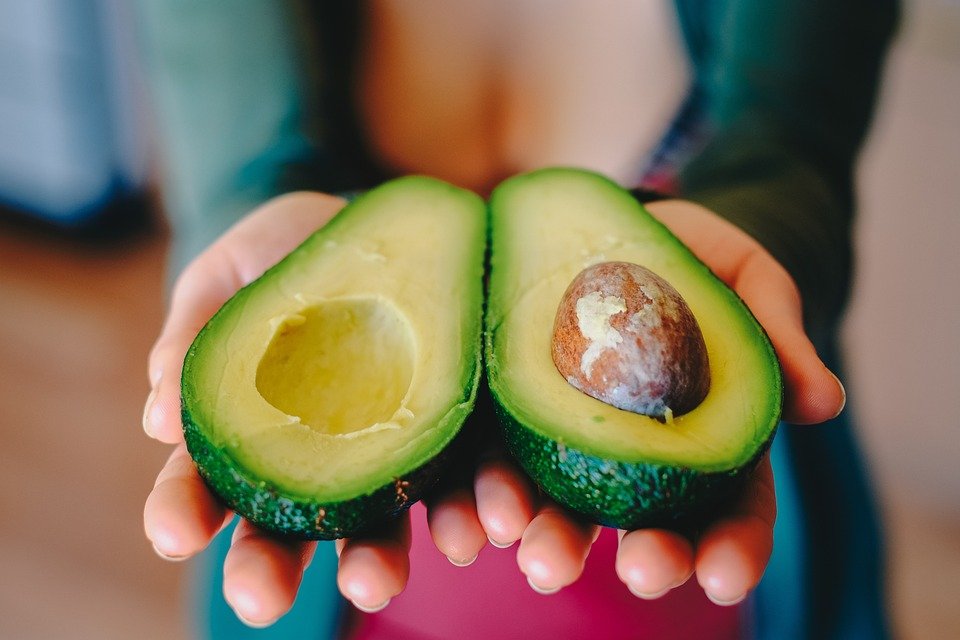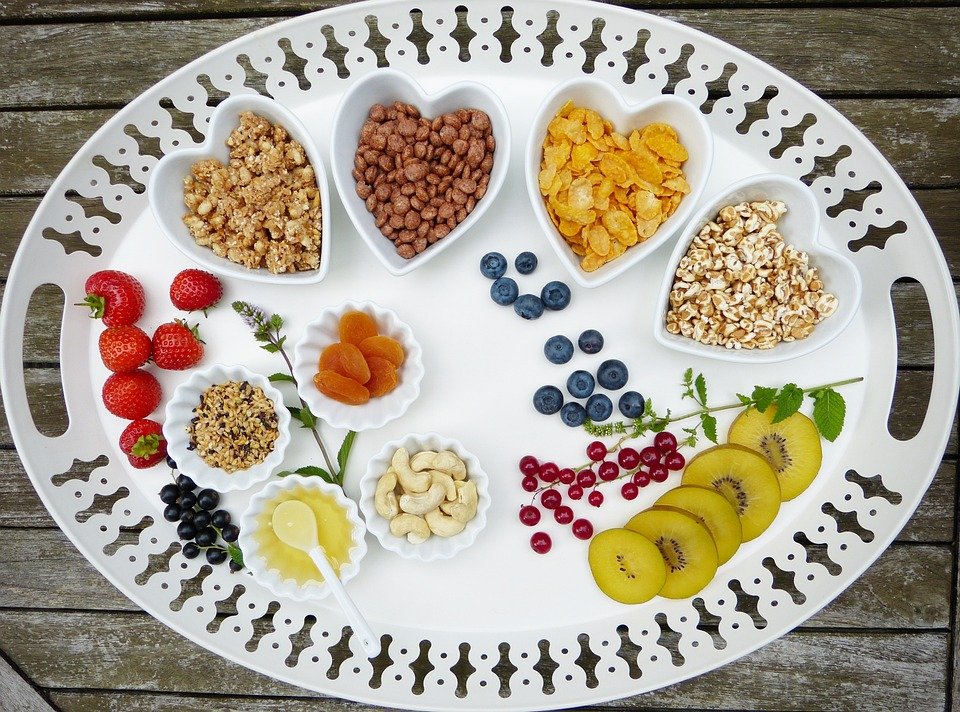Lose Weight Plant Based Diet
the Benefits of a Plant-Based Diet for Weight Loss
Introduction:
In today’s fast-paced world, maintaining a healthy weight can be a constant struggle for many individuals. From fad diets to intense workout regimens, people are constantly searching for effective ways to shed those extra pounds. However, amidst all the noise and confusion, one approach that has gained significant popularity is the plant-based diet. A plant-based diet primarily consists of consuming foods derived from plants, such as fruits, vegetables, whole grains, legumes, and nuts, while minimizing or eliminating the intake of animal products. In this article, we will explore the various benefits of a plant-based diet when it comes to weight loss and provide valuable insights into how you can successfully adopt this lifestyle.
1. Plant-Based Diet and Weight Loss:
When it comes to shedding excess weight, a plant-based diet can be a game-changer. The emphasis on whole, unprocessed foods in a plant-based diet means that you consume fewer calories while still feeling satisfied. Fruits and vegetables are generally low in calories and high in fiber, allowing you to eat a larger volume of food without consuming excessive calories. This increased satiety can help reduce overeating and snacking on unhealthy, calorie-dense foods, leading to weight loss over time.
2. Increased Nutrient Density:
One of the significant advantages of a plant-based diet is its high nutrient density. Fruits, vegetables, and whole grains are packed with essential vitamins, minerals, and antioxidants that are vital for overall health and well-being. By incorporating these nutrient-rich foods into your diet, you not only fuel your body with the necessary nutrients but also help regulate your metabolism, digestion, and hormone levels – all of which play a crucial role in weight management.
3. Reduction in Processed Foods:
A plant-based diet encourages the elimination or reduction of processed and refined foods, such as sugary snacks, refined grains, and processed meats. These foods are often high in added sugars, unhealthy fats, and artificial additives, which can contribute to weight gain and various health issues. By adopting a plant-based diet, you naturally steer away from these processed foods, thereby reducing your calorie intake and improving your overall health.
4. Gut Health and Weight Loss:
Maintaining a healthy gut is essential for effective weight management, and a plant-based diet can help achieve just that. Plant-based foods are rich in dietary fiber, prebiotics, and probiotics – all of which promote a healthy gut microbiome. A well-balanced gut microbiome has been linked to improved digestion, enhanced metabolism, and reduced inflammation, all of which can aid in weight loss. Furthermore, the fiber content in plant-based foods promotes regular bowel movements, preventing constipation and ensuring optimal waste elimination from the body.
5. Long-Term Sustainability:
Sustainability is a crucial factor when it comes to successful weight loss. Many diets often fail because they are too restrictive, making it hard to follow in the long run. The beauty of a plant-based diet lies in its flexibility and variety. There are countless plant-based recipes and meal options available, allowing you to enjoy a wide range of flavors and textures. This variety helps keep your meals exciting and prevents monotony, making it easier to stick to the diet and achieve your weight loss goals in the long term.
Conclusion:
In conclusion, a plant-based diet can be an effective tool for weight loss while providing numerous other health benefits. By focusing on whole, unprocessed foods derived from plants, you can nourish your body with essential nutrients, reduce calorie intake, improve gut health, and create a sustainable approach to weight management. Remember, transitioning to a plant-based diet is a personal journey, and it’s essential to listen to your body’s needs and consult a healthcare professional or registered dietitian to ensure you meet all your nutritional requirements. So, why not embrace the power of plants and embark on a journey towards a healthier, slimmer you?
Most Common Questions Regarding Lose Weight Plant Based Diet
1. What is a plant-based diet and how does it help in weight loss?
A plant-based diet consists of foods primarily derived from plants, such as fruits, vegetables, whole grains, legumes, nuts, and seeds, with little or no intake of animal products. This type of diet focuses on whole, unprocessed foods and is typically low in saturated fat and cholesterol.
Switching to a plant-based diet can aid in weight loss for several reasons. Firstly, plant-based foods are generally lower in calories compared to animal products, making it easier to create a calorie deficit. Secondly, these foods are high in fiber, which aids in satiety and helps control hunger. Lastly, the abundance of nutrients in plant-based foods can support overall health, which is essential for sustainable weight loss.
Important information:
1. A plant-based diet primarily consists of foods derived from plants.
2. It is typically low in saturated fat and cholesterol.
3. Plant-based foods are high in fiber, aiding in satiety and weight management.
2. Can you still get all the necessary nutrients on a plant-based diet for weight loss?
Yes, it is possible to obtain all the necessary nutrients on a plant-based diet for weight loss. However, it requires careful planning and attention to ensure you are meeting your nutritional needs.
To ensure you are getting all the essential nutrients, include a variety of plant-based foods in your diet. This will help you obtain a wide range of vitamins, minerals, and antioxidants. It is important to focus on consuming a balanced mix of fruits, vegetables, whole grains, legumes, nuts, and seeds.
If necessary, supplementation can be considered to ensure adequate intake of certain nutrients, such as vitamin B12, which is primarily found in animal products. Consulting with a registered dietitian or healthcare professional can be beneficial in designing a well-rounded plant-based diet that meets your specific nutritional needs.
Important information:
1. A well-planned plant-based diet can provide all necessary nutrients.
2. Include a variety of plant-based foods to obtain a wide range of nutrients.
3. Consult a registered dietitian or healthcare professional for personalized guidance.
3. How can a plant-based diet help in reducing calorie intake?
A plant-based diet can help in reducing calorie intake due to several factors. Firstly, plant-based foods tend to be lower in calories compared to animal products. For example, a cup of cooked lentils contains fewer calories than a similar portion of beef.
Additionally, plant-based foods are often high in fiber, which adds bulk to the diet without significantly contributing to calorie intake. This can help increase satiety and control hunger, leading to reduced overall calorie consumption.
Furthermore, a plant-based diet focuses on whole, unprocessed foods, which are typically less calorie-dense compared to processed foods. By minimizing or eliminating processed foods, which are often high in added sugars and unhealthy fats, calorie intake can be further reduced.
Important information:
1. Plant-based foods are usually lower in calories compared to animal products.
2. High fiber content in plant-based foods aids in satiety and hunger control.
3. Minimizing processed foods in a plant-based diet reduces calorie intake.
4. Are there any potential challenges or drawbacks to a plant-based diet for weight loss?
While a plant-based diet can be beneficial for weight loss, there can be challenges and potential drawbacks that individuals may face.
One challenge is ensuring adequate protein intake. Animal products are typically rich sources of protein, and it may require some planning to meet protein needs solely from plant-based sources. However, incorporating a variety of plant-based protein sources such as legumes, tofu, tempeh, and quinoa can help meet protein requirements.
Another potential challenge is the need for careful meal planning and preparation. Since plant-based diets emphasize whole, unprocessed foods, it may require more time and effort to prepare meals compared to relying on packaged or convenience foods. However, with practice and proper planning, this challenge can be overcome.
Lastly, social situations and dining out can sometimes be challenging when following a plant-based diet. Not all restaurants or social gatherings may have plant-based options readily available. However, with increasing awareness and popularity of plant-based diets, more options are becoming available.
Important information:
1. Meeting protein needs solely from plant-based sources may require planning.
2. Meal planning and preparation may require more time and effort.
3. Social situations and dining out can sometimes be challenging, but options are increasing.
5. Can a plant-based diet be combined with exercise for more effective weight loss?
Absolutely! Combining a plant-based diet with regular exercise can be a powerful combination for effective weight loss.
Exercise helps to increase calorie expenditure, build lean muscle mass, and improve overall fitness. When coupled with a plant-based diet, which is typically lower in calories and higher in nutrient density, the results can be amplified.
Engaging in a mix of cardiovascular exercises, such as brisk walking, running, or cycling, along with strength training exercises, like weightlifting or bodyweight exercises, can help maximize weight loss and improve body composition.
Important information:
1. Exercise helps increase calorie expenditure and build lean muscle mass.
2. Combining exercise with a plant-based diet can enhance weight loss.
3. A mix of cardiovascular and strength training exercises is beneficial.
Common Misconceptions about Lose Weight Plant Based Diet
One of the most popular dietary trends in recent years is the plant-based diet, which emphasizes the consumption of whole foods derived from plants. While this eating pattern has gained recognition for its numerous health benefits, there are several misconceptions surrounding its effectiveness in weight loss. It is essential to debunk these misconceptions to provide accurate information and promote a better understanding of the plant-based diet’s impact on weight management.
Misconception 1: Plant-based diets lack essential nutrients
One common misconception about plant-based diets is that they do not provide all the necessary nutrients for a healthy body. Some individuals believe that without consuming animal products, it is challenging to obtain sufficient protein, iron, calcium, and other vital nutrients. However, this notion is false. A well-planned plant-based diet can provide all the essential nutrients needed for optimal health. Plant-based protein sources, such as legumes, tofu, tempeh, and quinoa, can easily meet an individual’s protein requirements. Additionally, leafy greens, fortified plant-based milk, and plant-based calcium supplements can ensure adequate calcium intake.
Misconception 2: Plant-based diets are high in carbohydrates
Another misconception about plant-based diets in relation to weight loss is the belief that they are excessively high in carbohydrates, making it difficult to shed pounds. While it is true that plant-based diets typically include more carbohydrates than animal-based diets, it is important to consider the quality of these carbohydrates. Whole grains, fruits, vegetables, and legumes are all sources of complex carbohydrates that provide essential fiber, vitamins, and minerals. These carbohydrates are digested more slowly, leading to a more gradual rise in blood sugar levels, improved satiety, and sustained energy throughout the day, which can contribute to weight loss.
Misconception 3: Plant-based diets are not filling
Some people mistakenly believe that a plant-based diet is not as filling as a diet that includes animal products. However, this misconception fails to acknowledge the high fiber content of plant-based foods, which promotes feelings of fullness and aids in weight management. Plant-based diets are typically rich in whole grains, legumes, fruits, and vegetables, all of which contribute to increased satiety due to their fiber content. Additionally, these foods are often less calorie-dense than animal-based products, allowing individuals to consume larger portions while still maintaining a calorie deficit necessary for weight loss.
Misconception 4: Plant-based diets require expensive specialty foods
One prevalent misconception about plant-based diets is that they necessitate the purchase of expensive specialty foods, making them financially burdensome. However, this is far from the truth. While there are certainly expensive plant-based products on the market, a well-balanced and affordable plant-based diet can be achieved by focusing on whole, unprocessed foods. Staples such as grains, legumes, fruits, and vegetables are typically inexpensive and widely available. By incorporating these affordable options into one’s diet, it is possible to enjoy the benefits of a plant-based diet without breaking the bank.
Misconception 5: Plant-based diets are not sustainable in the long term
Some individuals question the long-term sustainability of a plant-based diet and believe that it may be challenging to adhere to in the long run. However, this misconception overlooks the growing popularity and accessibility of plant-based options in today’s society. With an increasing number of plant-based restaurants, recipe resources, and plant-based products available in grocery stores, adopting and maintaining a plant-based lifestyle has become easier than ever before. Additionally, a well-planned plant-based diet can provide all the necessary nutrients for long-term health, thus dispelling concerns about its sustainability. With proper planning and education, individuals can successfully follow a plant-based diet and achieve their weight loss goals.
Lose Weight Plant Based Diet
#Lose #Weight #Plant #Based #Diet


